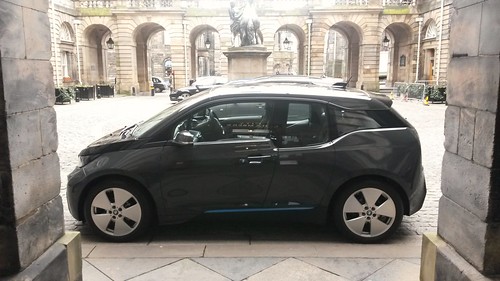Difference in co2 emissions was 139g/km against 42g/km for the hybrid.
Unless you can recharge the battery in a hybrid purely from braking action, e.g. pure electric low speed operation followed by braking, there is little advantage in total fossil fuel consumption compared with a petrol vehicle of similar size and power output, because additional fuel must be burned to charge the battery and drive the wheels.
If you go for a pure electric car, the electricity to charge the car is generally from the UK grid mix, which last year was still greatly propped up by coal, for emissions of 0.50 kgCO2e/kWh. For the same energy requirement, petrol releases 0.25 kg of CO2 equivalent. If you account for energy conversion efficiencies, infernal combustion from tank to wheel comes out at about 15-20% at best.
Obviously running an electric car from renewable energy has zero operating losses, but the motors in the car run at about 60-70% efficiency; electricity transmission and distribution is about 92% efficient; and UK grid is about 25% efficient (coal + gas + nuclear, mainly). So you get about 16% total efficiency, rising to 35% if the electricity is from CCGT. If it's renewable electricity, you can reach 65% total efficiency, and if you can use onsite renewables and eliminate transmission and distribution you can get close to 70%.
If the plug-in EV has a range extender to recharge the battery, as long as it's 2nd or 3rd generation, and thus essentially a constant-speed optimised power unit still running off fossil fuels, you have about 70% efficiency for that stage as well, and total efficiency is still high because the power unit is not incurring drivetrain losses.

 sticky
sticky


 posts
posts
